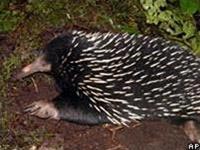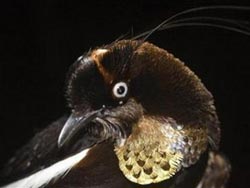 |
|
Long-beaked Echidna |
A team of scientists exploring a dense forest in Indonesia announced today (February 7) that they have discovered dozens of new species of frogs, butterflies, and plants, as well as a significant number of mammals that are nearly extinct elsewhere.
Bruce Beehler, co-leader of the scientific team, stated that the group also found several remarkable wildlife species in the Foja Mountains, which cover more than 800,000 hectares.
Two species of long-beaked echidnas, an ancient egg-laying mammal, were also discovered in this area.
However, these findings have only been announced and will be reviewed by the scientific community before being officially classified as new species—a process that can take from six months to many months.
This expedition team, established by the International Nature Conservation Organization, arrived in Papua province, one of the most remote provinces of Indonesia in terms of geography and politics, in December 2005.
 |
|
Hummingbird |
The team consists of 11 scientists from Australia, the United States, and Indonesia, and they required six permits to legally helicopter over the swampy area to access this forest.
They reported discovering 20 species of frogs, including a very small frog measuring less than 1.3 cm in length, four species of butterflies, and at least five new species of palm family plants.
One of the most notable discoveries is a new species of yellow tree kangaroo from Indonesia, previously thought to be hunted to the brink of extinction, as well as a species of hummingbird.
TƯỜNG VY


















































